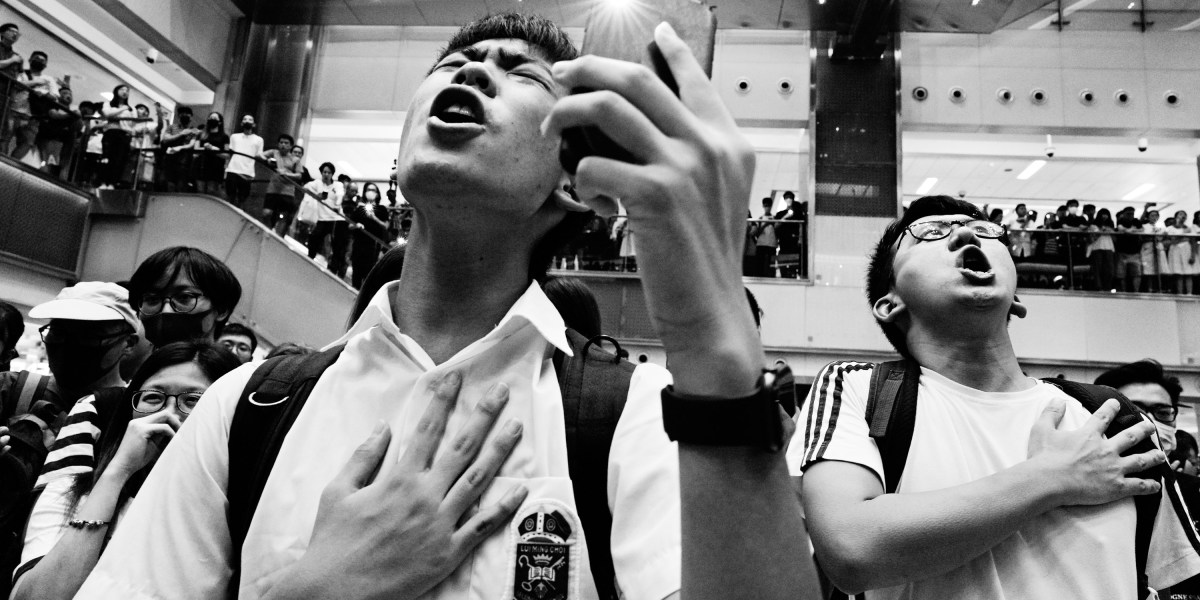Hong Kong is targeting Western Big Tech companies in its ban of a popular protest song

🌈 Abstract
The article discusses how the Hong Kong government is targeting Western Big Tech companies in its ban of the popular protest song "Glory to Hong Kong", and how this is already succeeding in making platforms like YouTube remove the song worldwide.
🙋 Q&A
[01] Hong Kong's Ban on "Glory to Hong Kong" Protest Song
1. What is the background of the "Glory to Hong Kong" protest song?
- The song has become the unofficial anthem for protesters fighting China's tightening control and police brutality in Hong Kong.
- It was first uploaded to YouTube in August 2019 by an anonymous group called Dgx Music.
- The song's popularity grew after China passed the harsh Hong Kong national security law in 2020, with lyrics like "Liberate Hong Kong, revolution of our times."
2. How has the Hong Kong government tried to censor the song?
- The Hong Kong government has been arresting people for performing the song on the ground in Hong Kong.
- The government has also been making requests to foreign tech companies like Google, Apple, Meta, and Spotify to remove the song from their platforms.
3. What is the new legal approach the Hong Kong government has taken to censor the song?
- The Hong Kong government has obtained a civil court injunction to ban the distribution of the song online, targeting 32 specific YouTube videos.
- This civil injunction approach is seen as an attempt to make it easier for tech companies to comply, as they may face less reputational damage compared to complying with a national security order.
[02] Tech Companies' Response to the Censorship Efforts
1. How have tech companies responded to previous Hong Kong government requests to remove the song?
- Major Western tech companies like Google, Apple, Meta, and Spotify have largely refused to cooperate with previous Hong Kong government efforts to prevent the spread of the song.
- They have cited concerns about aiding authoritarian control and obstructing internet freedom if they comply with such requests.
2. How might the new civil injunction approach impact tech companies' response?
- Experts believe the civil injunction approach may make tech companies more likely to comply, as they may face less reputational damage compared to complying with a national security order.
- However, tech companies are still navigating a "balancing act" between not wanting to lose the Hong Kong market or endanger local staff, while also being worried about being seen as complying with authoritarian government actions.
3. What are the potential consequences of tech companies complying with the censorship efforts?
- Compliance could be seen as a violation of internet freedom and freedom of expression, and could have a chilling effect on free speech in Hong Kong.
- Even with exemptions for academic and news activities, the vague boundaries may encourage widespread self-censorship on potentially sensitive topics.
Shared by Daniel Chen ·
© 2024 NewMotor Inc.